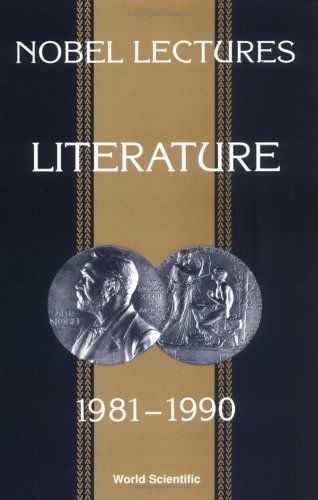
Literature: 1981-1990
Equally important to our understanding of history and humanity are the great works of literature. The Nobel Prize for literature recognises modern classics and the efforts of authors to bridge gaps between different cultures, time-periods and styles; the prizewinners between 1968 and 1995 are from four continents. These volumes are collections of the Nobel lectures delivered by the prizewinners, together with their biographies, portraits and presentation speeches for the period 1968 - 1995. Each Nobel lecture is based on the work that won the laureate his prize. New biographical data of the laureates, since they were awarded the Nobel prize, are also included. These volumes of inspiring lectures by outstanding individuals should be on everyone's bookshelf. Literature: (1981) E Canetti -- for writings marked by a broad outlook, a wealth of ideas and artistic power; (1982) G G Marquez -- for his novels and short stories, in which the fantastic and the realistic are combined in a richly composedworld of imagination, reflecting a continent's life and conflicts; (1983) W Golding -- for his novels which, with the perspicuity of realistic narrative art and the diversity and universality of myth, illuminate the human condition in the world of today; (1984) J Seifert -- for his poetry which endowed with freshness, sensuality and rich inventiveness provides a liberating image of the indomitable spirit and versatility of man; (1985) C Simon -- who in his novel combines the poet's and the painter's creativeness with a deepened awareness of time in the depiction of the human condition; (1986) W Soyinka -- who in a wide cultural perspective and with poetic overtones fashions the drama ofexistence; (1987) J Brodsky -- for an all-embracing authorship imbued with clarity of thought and poetic intensity; (1988) N Mahfouz -- who, through works rich in nuance -- now clearsightedly realistic, now evocatively ambiguous --